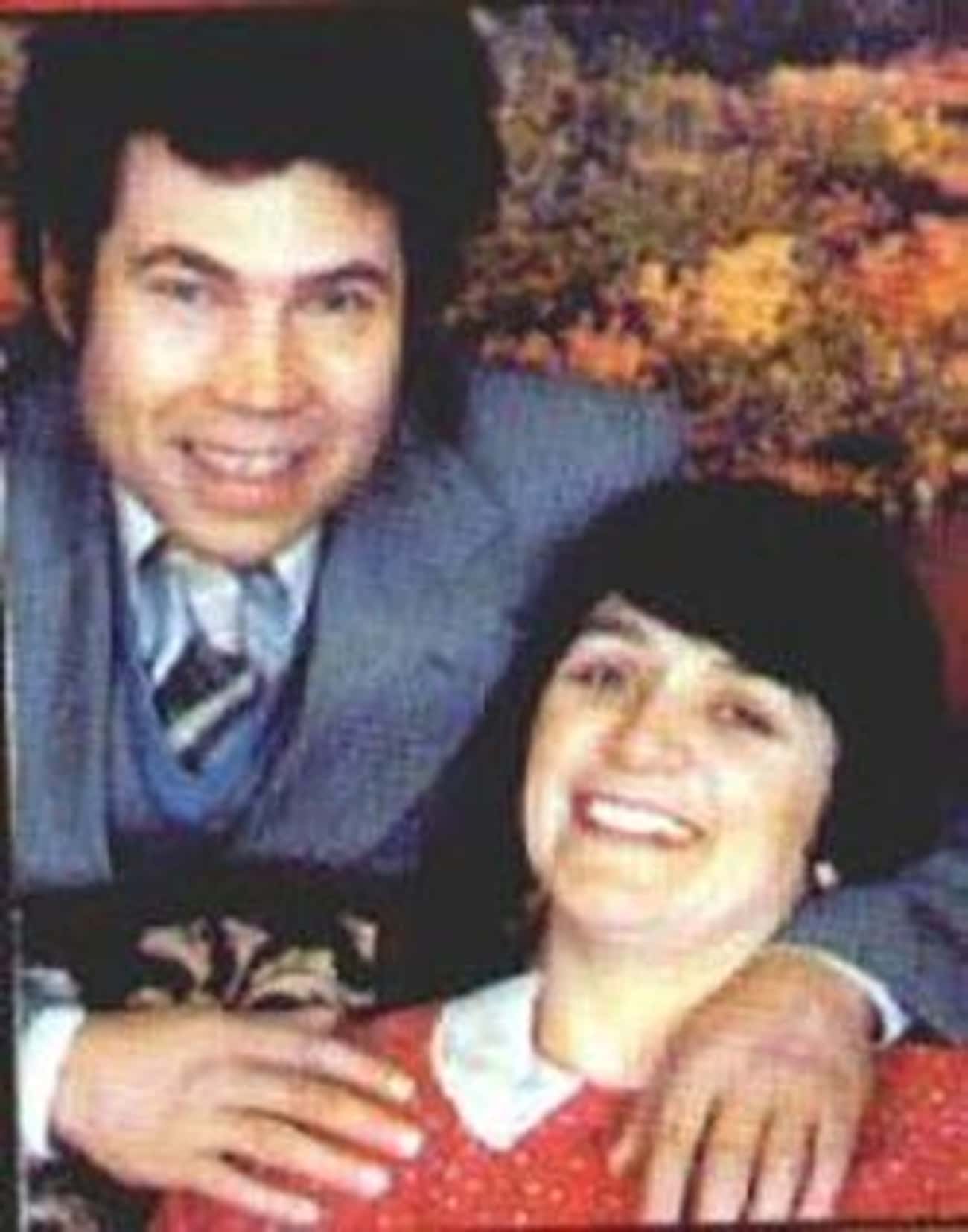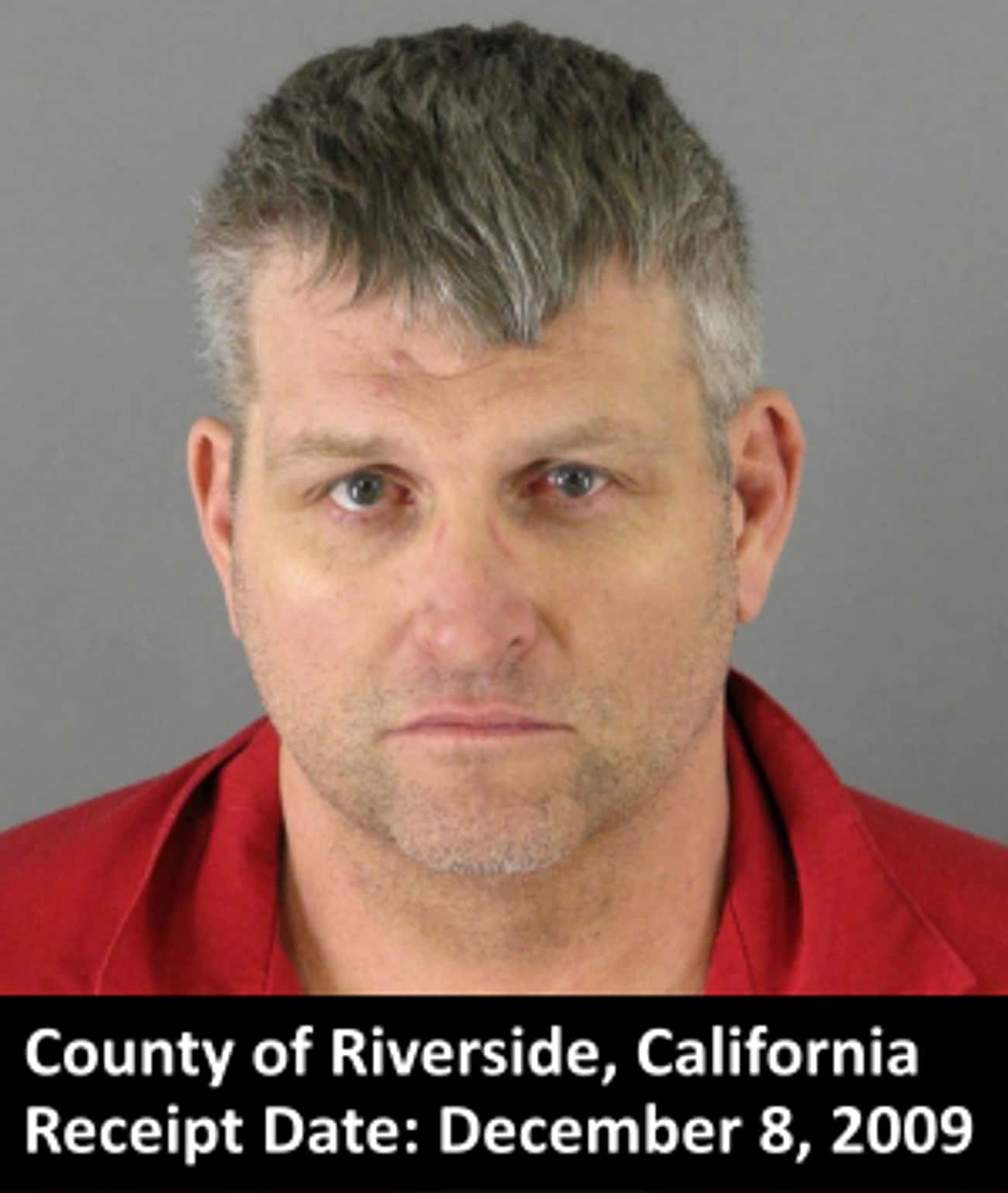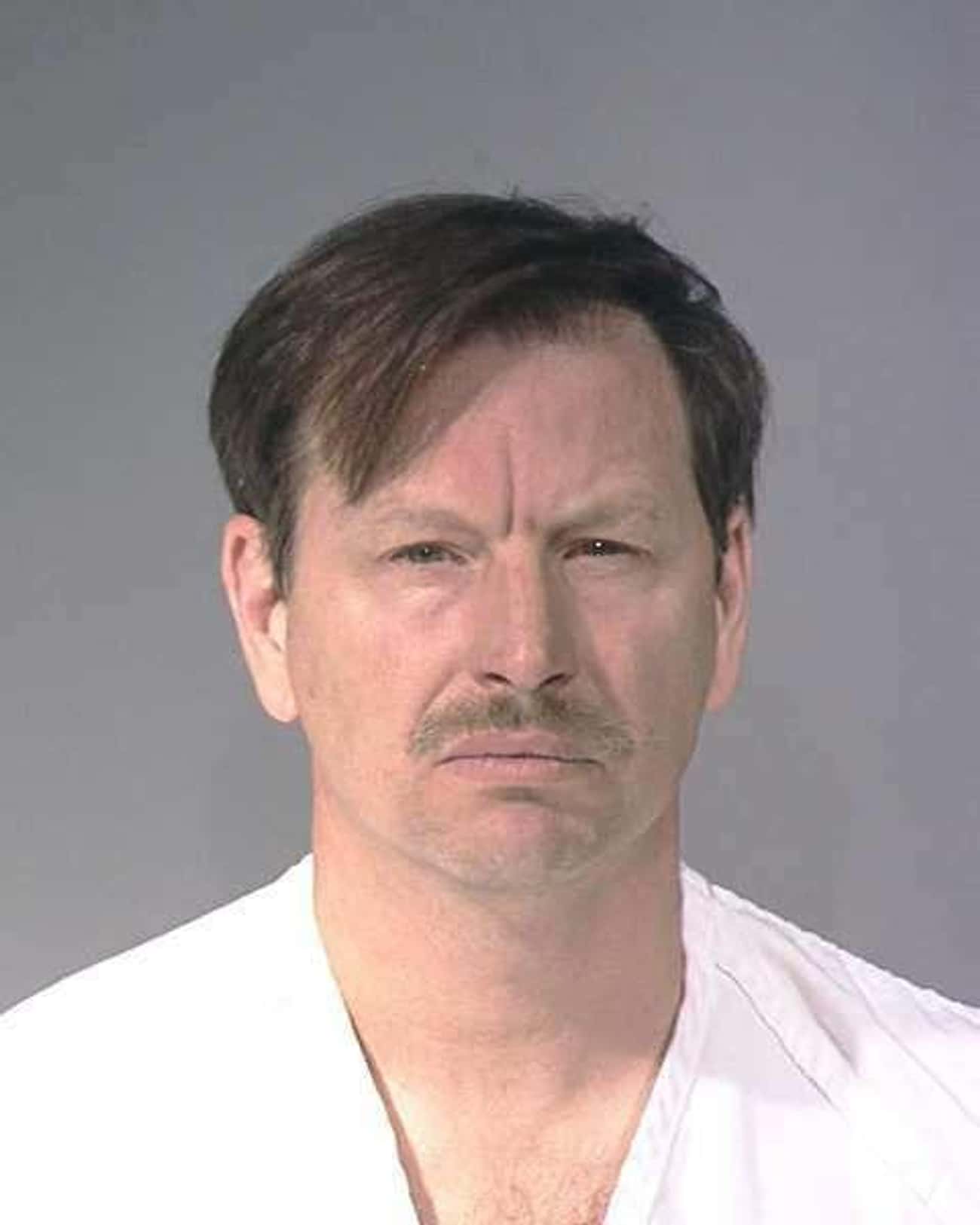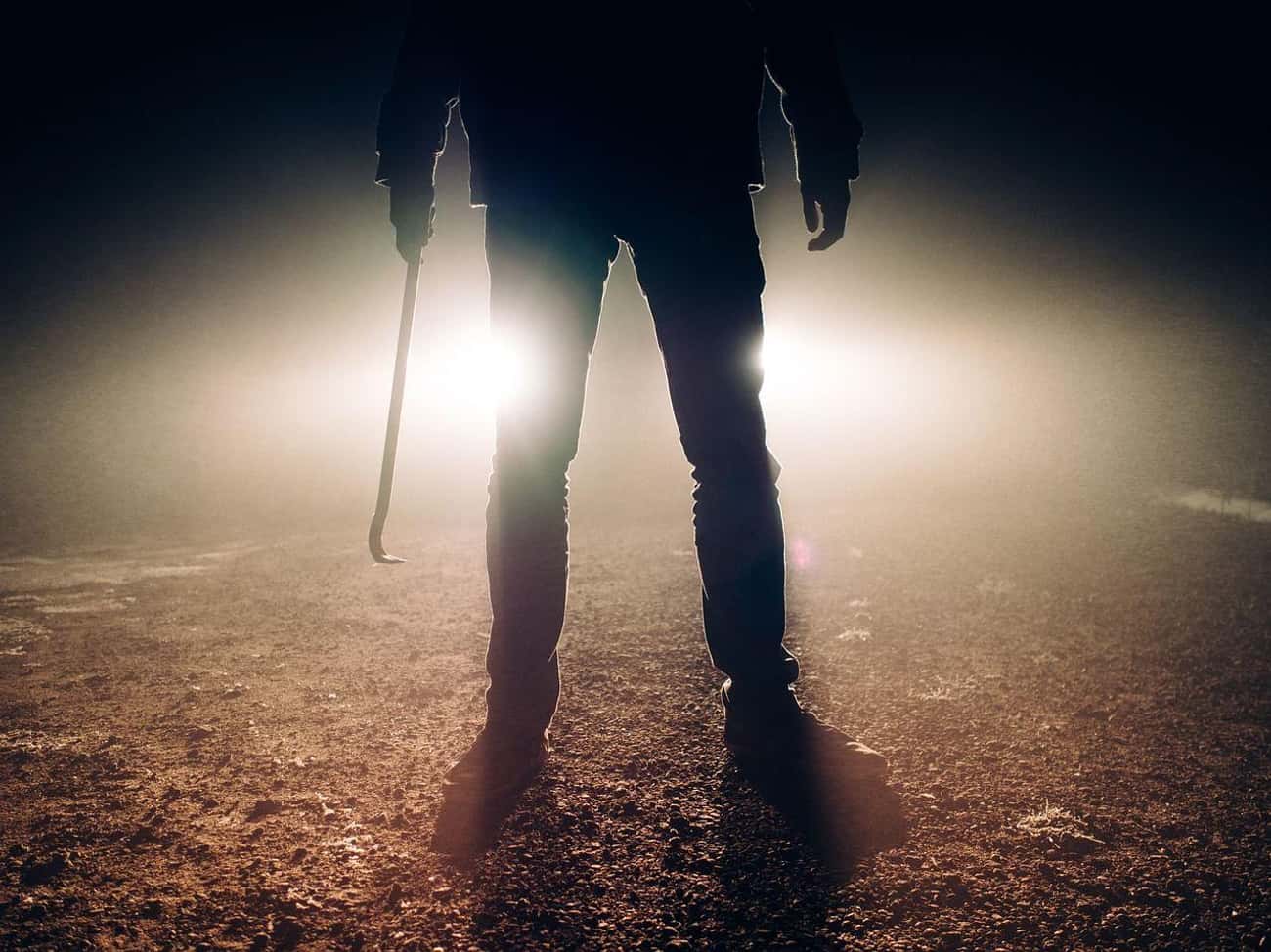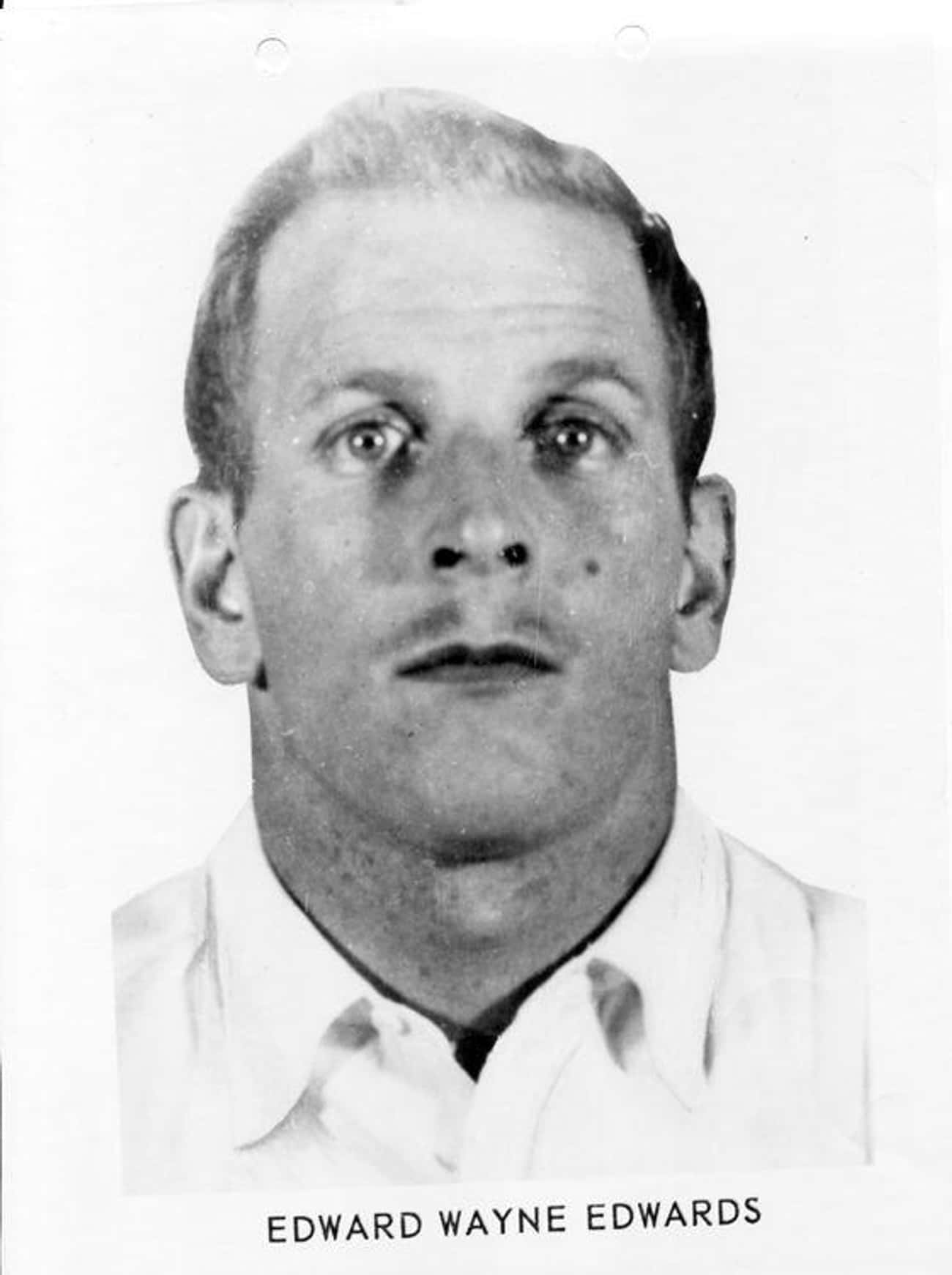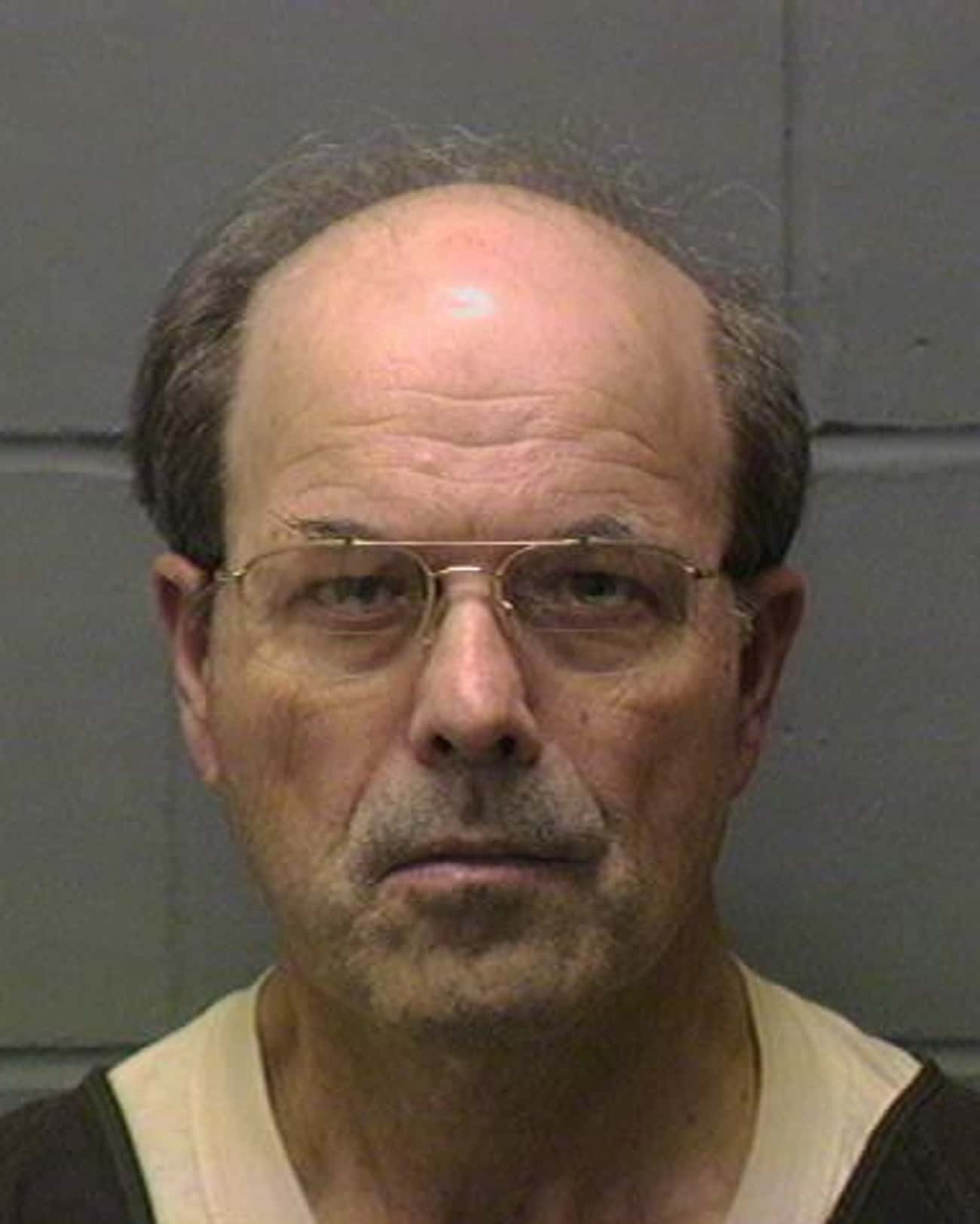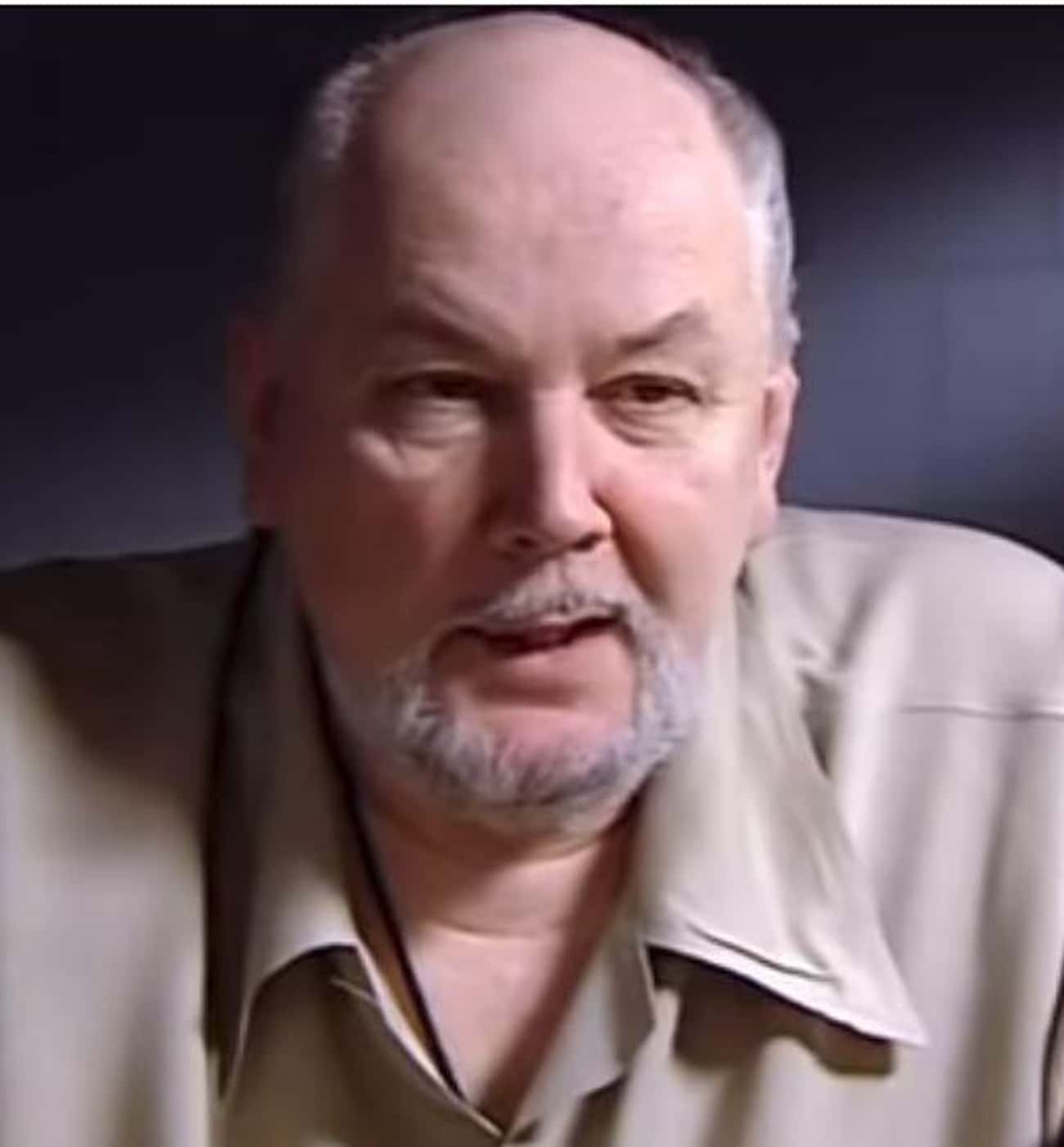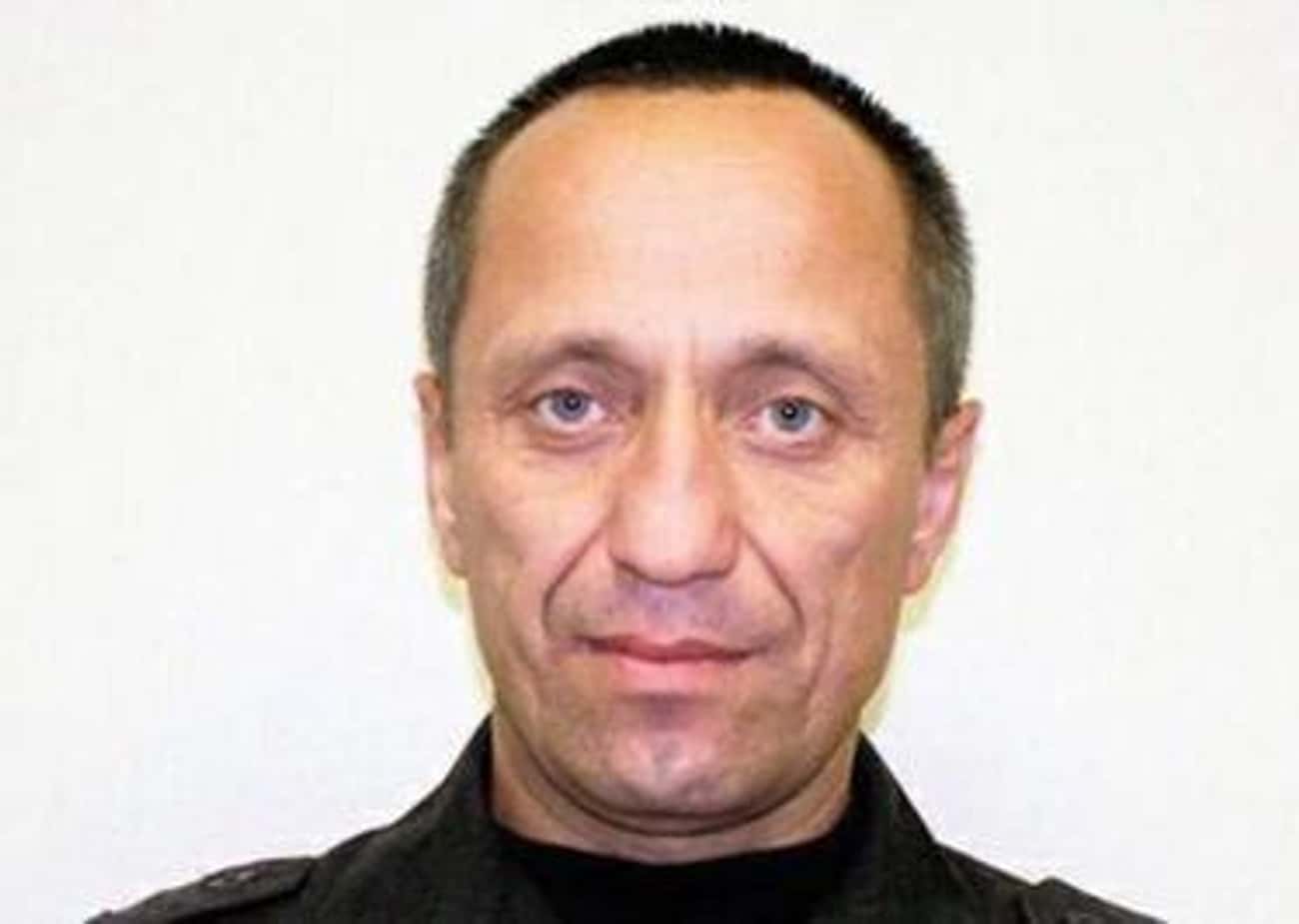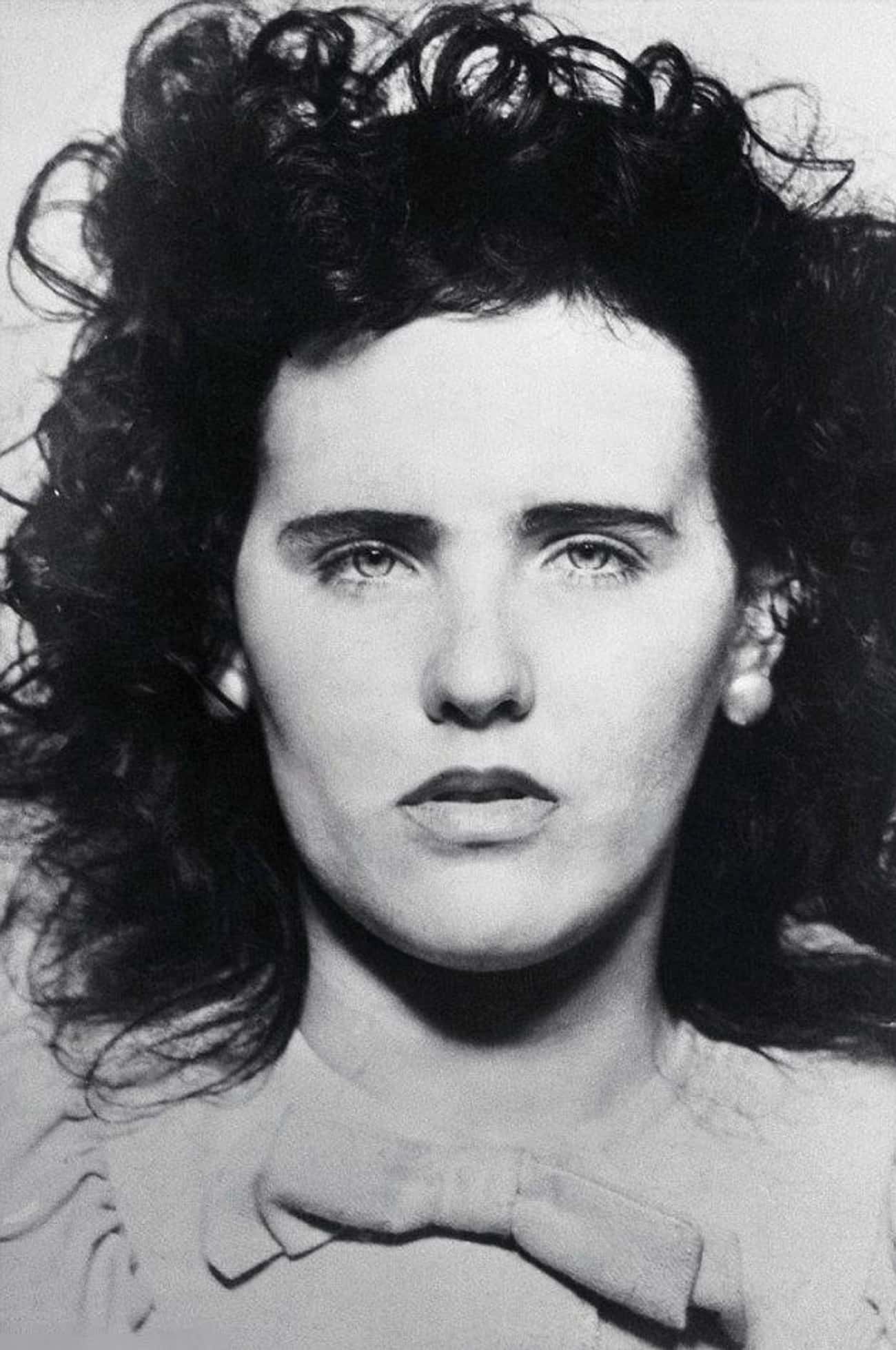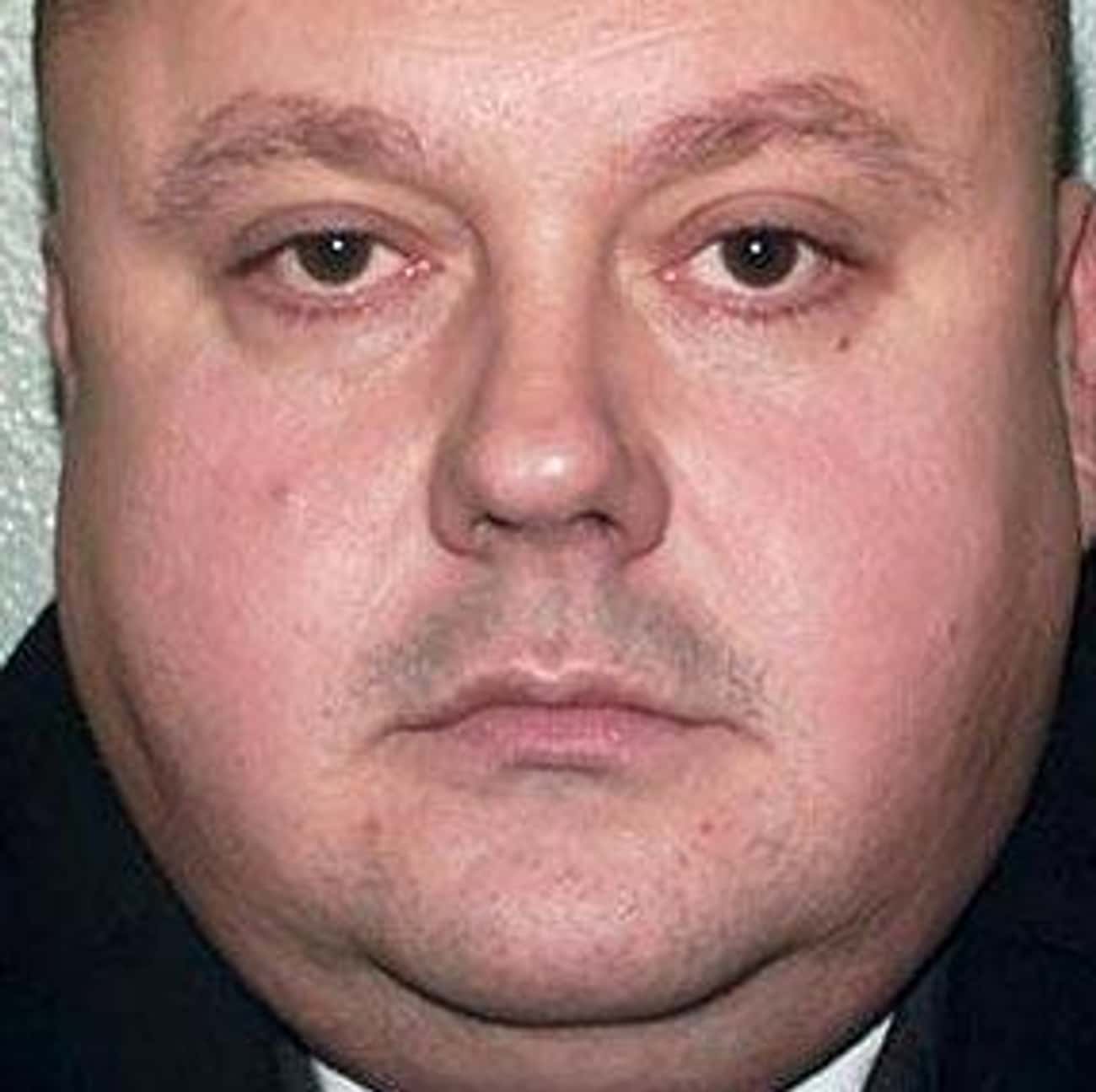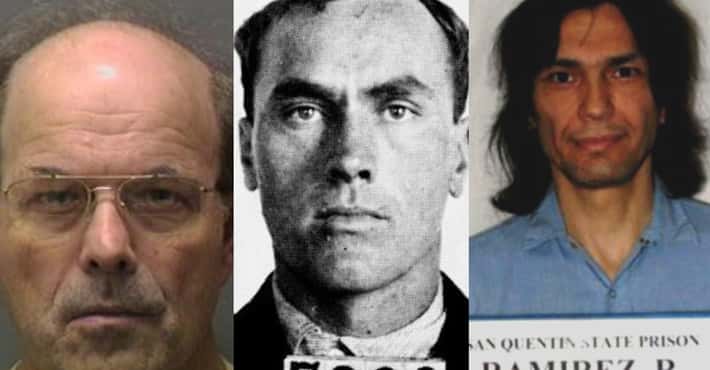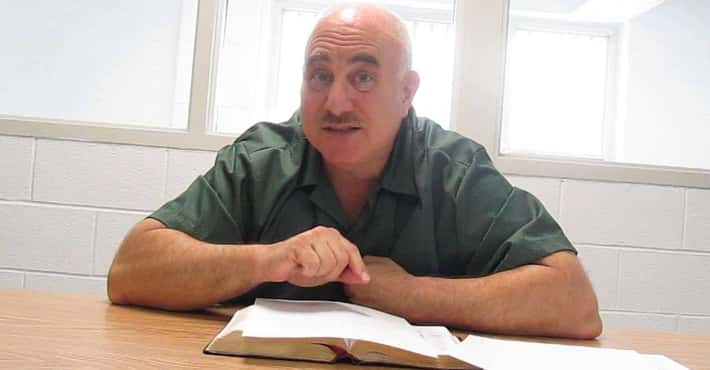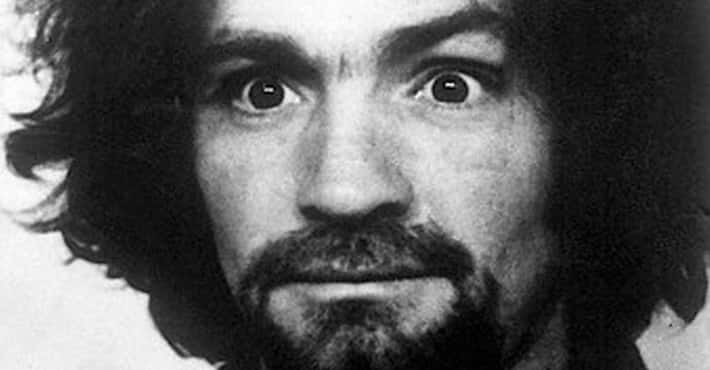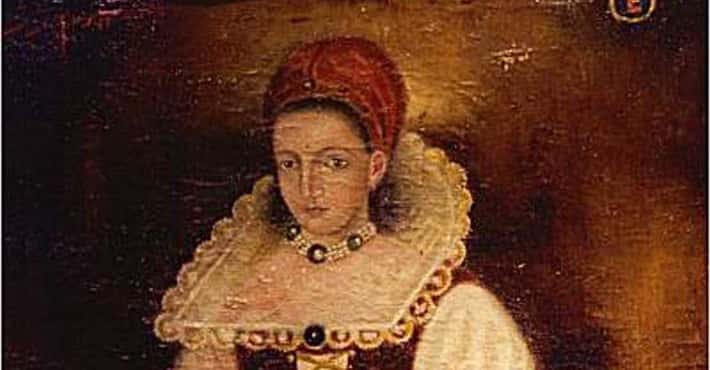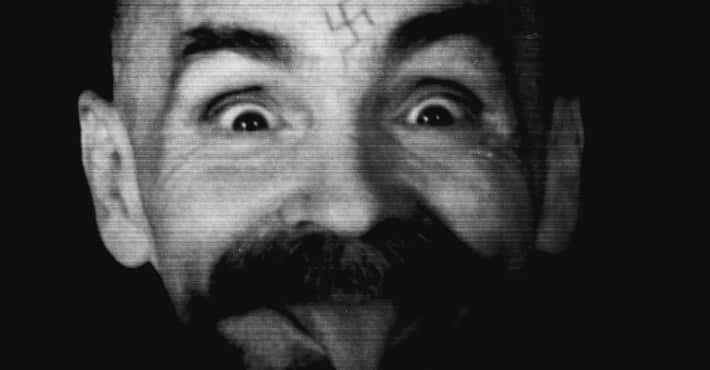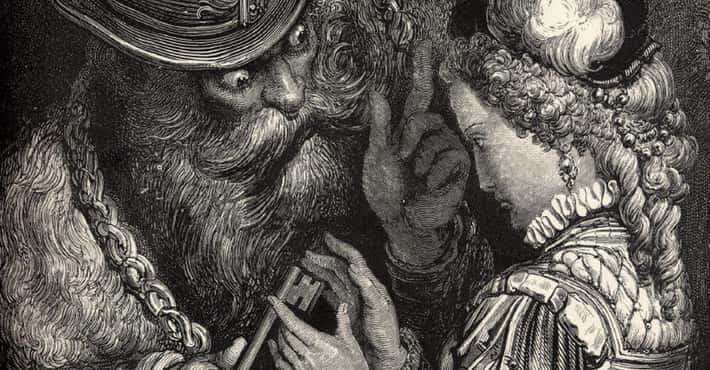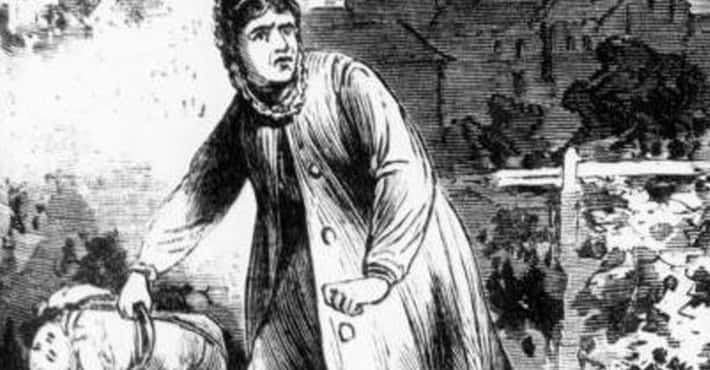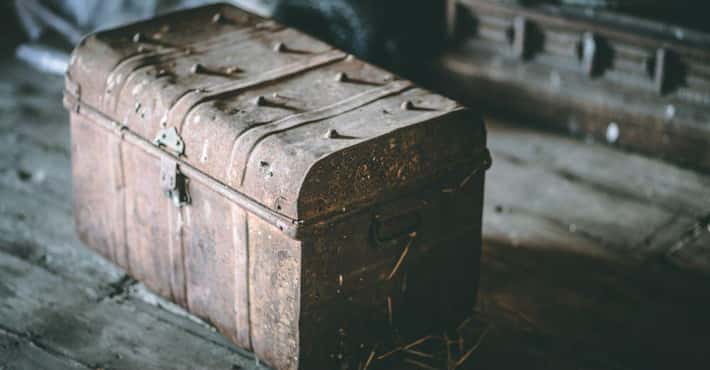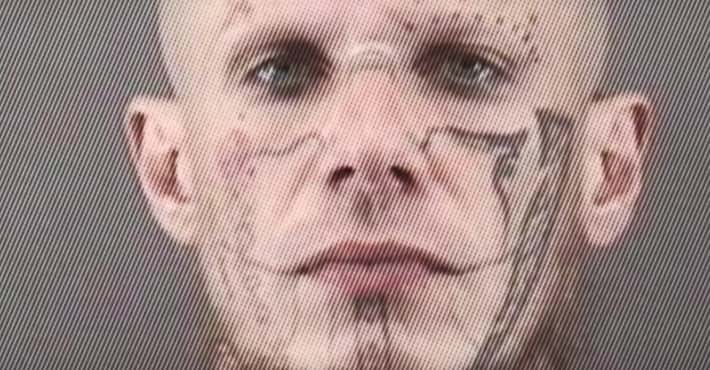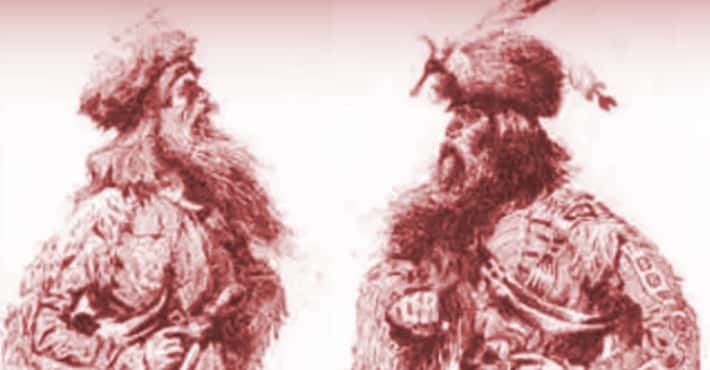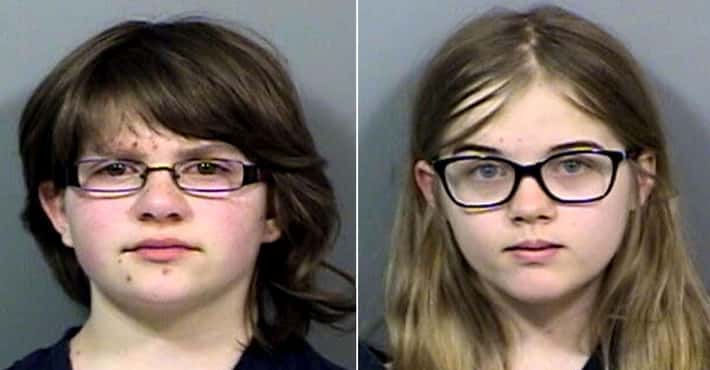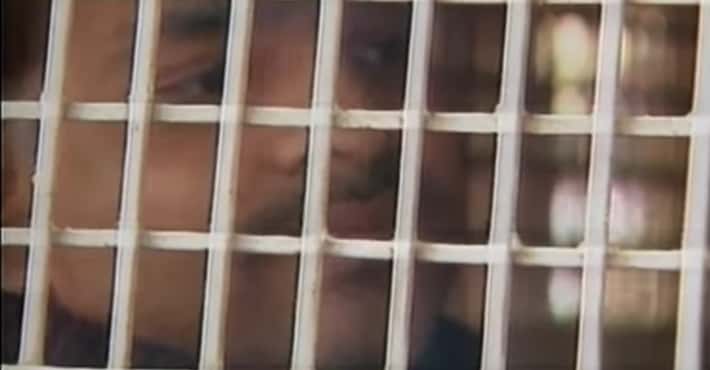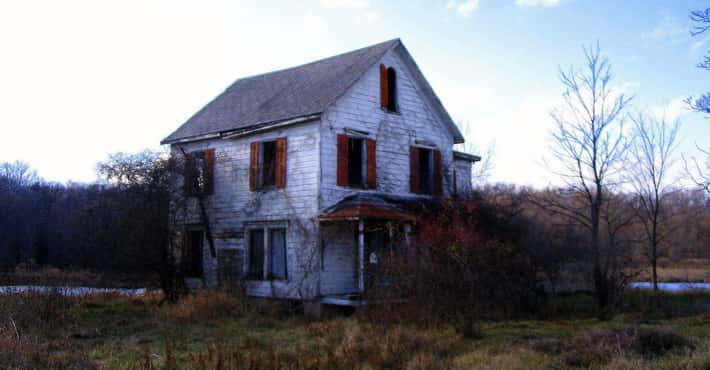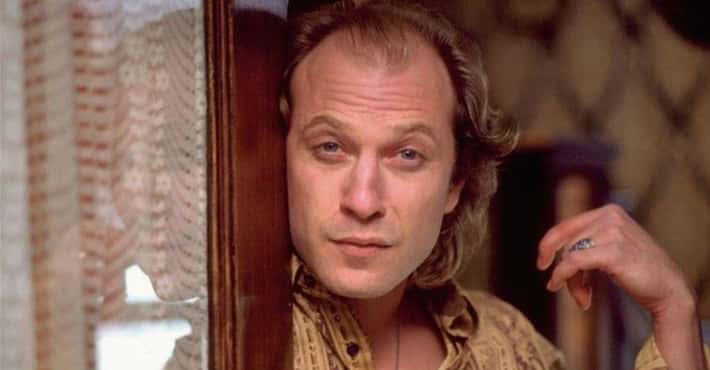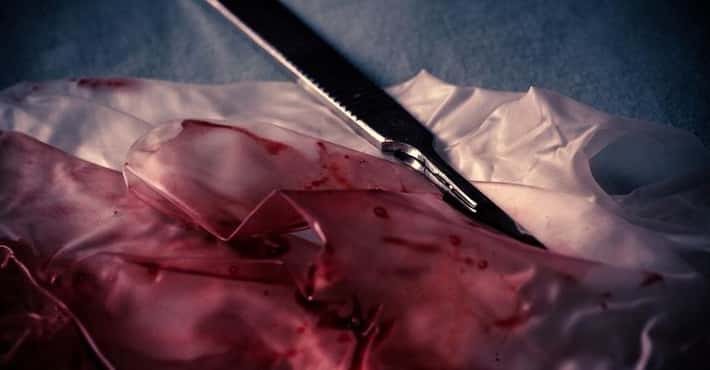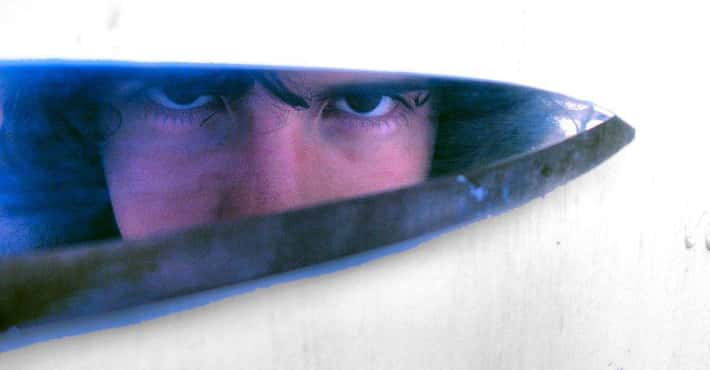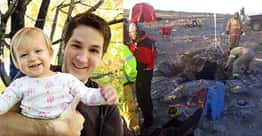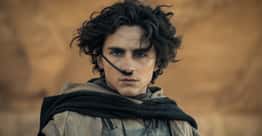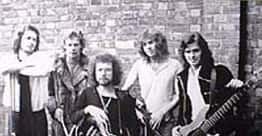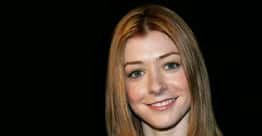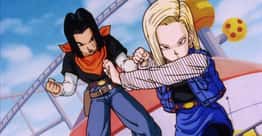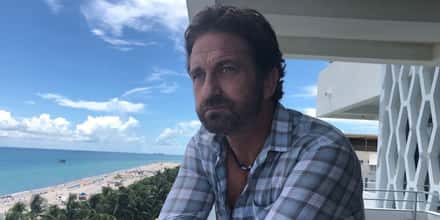What The Children Of Serial Killers Have Publicly Said About Their Parents
Statistically speaking, you will walk past a murderer 10.76 times in your life. But what if you didn't just walk past a murderer - what if they were a part of your family and you didn't know it? These stories of the children of serial killers show just how well their parents hid their disturbing behavior.
Some of these offspring of serial killers had an inkling their parent was up to something, usually a general sense of something not being quite right. Others had no idea what was happening, sometimes under their own roof.
Mae West, daughter of Fred and Rosemary West, has repeatedly spoken about the effect her parents' crimes had on her life. Between 1967 and 1987, Fred and Rosemary West murdered at least 12 young women - possibly up to 20 - including Fred's ex-wife, Rena West, and two of their own children. The couple even buried several women beneath their shared home in Gloucestershire, England.
Because of her parent's actions, Mae West feels that she can't work with children, explaining, "It's about self-protection as much as anything, because if something happened to a child in my care - if they fell and hurt themselves - I'd be blamed because of my background."
She has also discussed her problems starting a new life somewhere else, after attempting to relocate to Australia: "They wouldn't let me in the country because of what my parents did." And the treatment even extends to her husband, who Mae claimed "applied to be a policeman. But he couldn't get in, and I'm sure it's because he's married to me."
Mae alleges that as a child she was molested by her father and raped by her uncle; she also says her father raped her sister. Looking back on her childhood, Mae realized that she and her sister, like most young girls, played dress-up with clothing they found in the house. They didn't know it, but the clothes belonged to their father's victims.
She feels it's unfair that the police show concern about her family now, when in the past, "we were overlooked by the authorities while our parents abused us sexually and physically as kids, and now as adults, they say: 'You're from an abusive family. We'll have to keep an eye on you.'"
Mae often visited her mother in prison, despite what she did, because she believed her father was the real culprit. But she thinks her mother manipulated her: "She started to hug me and hold my hand when I visited her. She'd never shown me any affection before. She signed all of her letters, 'Love as always, Mum,' yet she'd never told me she loves me before."
Mae soon realized her mother was never going to answer any of her questions or take any responsibility. In fact, she had become "quite high and mighty in prison, claiming my sister Louise wouldn't be a good parent, overlooking the fact that she and Dad had been responsible for violently and sexually abusing her."
Fortunately, Mae has been seeing a therapist and remains focused on the future. She is happily married with an adult daughter and a young son. She is moving on with her life, but is still haunted by the past: "I can't bear to be cornered in a corridor or a room. I'm alert to all the awful stuff that can happen." She also has trouble connecting to people emotionally:
I cut off my feelings when my uncle abused me. I did it to protect myself. I'm practical. I'm very good at helping if one of my sisters needs her washing machine fixed but if she rings up crying, I don't know what to say or do.
More Rosemary West- #34 of 61 onThe Scariest Serial Killers In History
- #12 of 63 onWho Is The Most Famous West In The World?
- #2 of 20 onThe 20 Most Deadly Serial Killer Couples
The Happy Face Killer's Daughter Believes He Could Have Killed Her
Photo: County of Riverside, California, United States / Wikipedia / Public DomainKeith Jesperson, a long-distance truck driver from British Columbia, also known as the Happy Face Killer, raped and murdered eight women during the 1990s. Jesperson spread out his killings to several states, including California, Florida, Nebraska, Oregon, Washington, and Wyoming.
Jesperson's daughter, Melissa Moore, revealed the strange relationship she had with her father: "He never molested or beat any of us, it was just a feeling that something was building, seething beneath the surface. I once tried to articulate it to a school counselor but it didn't come out right. I mean, a lot of kids think their dad is weird."
Moore revealed she also felt uncomfortable with her father's behavior around women. He would tell her details of his sexual exploits, "leer at women in public, make lewd remarks about them, and harass them." Moore felt at one point like her father wanted to tell her what he was doing, but ultimately said, "I can't tell you, sweetie. If I tell you, you will tell the police. I'm not what you think I am, Melissa."
Several months after that last meeting, Moore's mother told her that Jesperson was arrested for murder. Moore realized she had seen some signs of her father's deviant behavior, remembering a time when she found some kittens in a farmhouse and her father "casually hung them up on the clothesline, and began to torment them. I remembered his enjoyment as I screamed and pleaded with him to take them down. Later on I found their little bodies in the back garden."
She also remembered a time where her father told her he knew how to kill someone and get away with it. "He started to tell me how he would cut off the victim's buttons, so that there wouldn't be any fingerprints left, and he would wear cycling shoes that didn't leave a distinctive print in the mud."
As an adult, she flashed back to that scene and realized they had been traveling through an area where he murdered a woman named Taunja Bennett, and he was most likely talking about her. "I think he wanted to relive it and enjoy the moment again."
The effects of her father's crimes took a toll on Moore. Reading the newspaper became too difficult, as she didn't want to hear what people were saying about her father, even though she realized he was a bad man. She "was in a violent, abusive relationship with a boy - something I think my father primed me for." She was even isolated at school: "Parents were really shaken up by the thought that their children might have been in harm's way, so they kept them away from me and I began to feel tremendous guilt and shame."
Fortunately, Moore was eventually able to move on with her life, and even get married and have children. She cut off contact with her father after her grandfather revealed that, during a visit, Jesperson admitted to having thoughts of killing Moore and her siblings.
- #4 of 33 onSerial Killers Who Are Aries
- #9 of 12 on12 Terrifying Truck Driver Killers Who Committed Murder While On The Road
- #15 of 20 on20 Famous Serial Killers of Women
- Photo: King County Sheriff's Office. / Wikimedia Commons / Public Domain
Unlike most of the other children on this list, Matthew Ridgway remembers his father Gary Ridgway as a very involved and gentle parent who never raised his voice. The two went camping often, and his father taught him to play baseball. "Even when I was in fourth grade, when I was with soccer, he'd always, you know, be there for me. I don't think I ever remember him not being there."
Gary Ridgway, better known as the Green River Killer, started his deviant career in the fall of 1982. He killed dozens of sex workers in the following years. It seemed like the killer would never be caught, until DNA technology allowed authorities to link him to a string of crime scenes in 2001.
During the time of the murders, Gary converted his religion and preached Bible verses door to door. Ted Bundy later helped in the investigation by suggesting the police move their search closer to one of the sites the killer liked to dump bodies.
Matthew Ridgway never believed his father was the Green River Killer, thinking, "He's just one of the guys that happened to be one place, and you know, he's my dad. He didn't do it, you know." What Ridgway didn't know at the time, however, was that his father often used his son's photo as a tool to lure women and put them at ease before killing them. Gary also took Matthew to play near the Green River where he dumped the bodies of the women he killed.
More Gary Ridgway- Dig Deeper...Ted Bundy Helped Detectives Catch The Green River Killer
- And Deeper...Inside Gary Ridgway's Childhood
- #13 of 61 onThe Scariest Serial Killers In History
The Daughter Of A Mentally Ill Father And Depraved Stepmother Spoke Out About Her Experiences
James Carson, a divorced father and alleged cannabis dealer from Phoenix, and Suzan Carson, a divorced woman with two teens who spent her time at the local country club, met at a Thanksgiving party. The deadly duo killed between three and 12 people from 1981 to 1983, claiming witches, homosexuality, and abortion were what instigated them.
Jennifer Carson, James Carson's daughter from his first marriage, saw things change a lot over the years. Suzan for one was "living this posh, country club lifestyle before she started using LSD and got involved with my father." Her father was seemingly normal before meeting Suzan, too:
When my mom met [my father], he was a nice Jewish boy. No one could have foreseen this - especially how weird it got. Typically your Jewish father doesn't convert to Islam, then to radical Islam, and change it to some weird religion where they grow pot and kill [gay people].
Jennifer believed Suzan had a lot of influence over her father, who tended to be a follower:
If he had fallen in love with a televangelist, he would become one. If she had joined ISIS, he would have. He was that much of a follower. He was drawn to extremists, people he found really exciting.
The couple's behavior grew more frantic and less rational. "It's absolutely nuts. They were dropping acid daily," Jennifer said. She did not know the extent of their depraved lifestyle, but she did recall an incident where she asked her stepmother to rub her back before bed, "and she scratched my back and said she was going to get the demon out of me." Jennifer was scared, and then Suzan told her, "You can fool your father, but I know that you're the devil, and I am going to get this demon out of you."
When Jennifer finally broke down and told her mother about Suzan and her father, and what they were doing, her mother packed up, and the two left for Southern California. In 1983, following the third known murder by the duo, the Carsons were finally apprehended, tried, and sentenced to 50 years in prison.
In 2015, Suzan was eligible for parole. Jennifer and others who opposed her release planned to testify at her hearing, stating, "It's not vindictive, but it's for safety and accountability to the public, as long as [Suzan] can lift a hand... she could harm somebody." In the end, Suzan did not show up to her hearing and subsequently was not paroled. This was a relief for Jennifer, who said, "She'll pass away in prison. She'll spend the rest of her life in prison, and that's what should happen."
- Photo: FBI / Wikimedia Commons / Public Domain
April Balascio always knew there was something off about her father, Edward Edwards. The family frequently moved, always in the middle of the night. "He'd tell us that we had to move in secret because he was protecting us because there were people who wanted to hurt him or us." Balascio described him as hard to deal with at times, a Jekyll-and-Hyde persona: "He could be very good with us kids. He was sociable, charming, but he could also be abusive. When he was abusive, it was hell."
In March 2009, she felt an urge to check out cold cases in the areas she lived as a child. While reading about a few cases in Wisconsin, she recognized a place called the Concord House, a wedding venue in Wisconsin where her father had been a handyman when they lived in the area. She realized the case - dubbed the Sweetheart Murders after a young couple who attended a wedding reception at the Concord House were murdered directly after - seemed very familiar.
Balascio instantly knew her father was responsible. "I was shaking; I was shaking because immediately I knew who it was that committed the murders," she said. Evidently, Edwards had taken the family to the park where the couple's bodies were found the day after their visit. "The next day I knew, there were ambulances and sirens everywhere, he'd taken us to where their dead bodies were." Balascio shared her findings with the police, and several months later, Edwards was arrested and confessed to four murders.
An FBI cold case detective believes Edwards might have been responsible for several infamous murders, including the Zodiac killings and that of Teresa Halbach, subject of Netflix's Making a Murderer docuseries. Edwards also allegedly killed his own son in 1996 to collect the life insurance.
In 2001, Edwards received two life sentences and a death sentence. However, he died from complications of diabetes a month after his sentencing.
Balascio knows she made the right decision, but she is still wracked with guilt. "I live with two kinds of guilt. Not reporting him sooner and possibly saving lives, and the guilt of turning in my own father. They're both strong."
Kerri Rawson has a bone to pick with Stephen King. In September 2014, Stephen King announced a novella-turned-movie he had written inspired by her father, Dennis Rader, AKA BTK, and his family. Rawson claimed King was "exploiting my father's 10 victims and their families. He's going to give my father a big head, and he absolutely does not need that."
BTK stands for "bind, torture, and kill," which was Rader's method of killing his victims over a 31-year period starting in 1974. He was arrested in 2005 and received 10 life sentences.
Rawson remembers when one of her father's victims, Marine Hedge, was murdered and how her father reacted. She knows he was not home the night Hedge disappeared: "It was stormy, and I didn't want to sleep by myself. My mom let me in her bed - that's how I know he was gone."
After discovering who her father really was, she struggled emotionally: "I have never hated him. I was extremely hurt by him, I love him after all. He was my dad. So I was extremely angry and hurt."
While in prison, Rader became angry that none of his family visited him. Rawson responded, "You have had these secrets, this 'double life' for 30 years; we have only had knowledge of it for three months... We are trying to cope and survive... You lied to us, deceived us."
Rawson eventually forgave her father and wrote him a letter. She told him about her life, her kids, and how she appreciated how he had raised her. She wrote, "I don't know if I will ever be able to make it for a visit, but know that I love you and hope to see you in heaven someday." Rawson wrote a book about her experiences that will be released in January 2019.
- Photo: Dumont, New Jersey Police Department / Wikimedia Commons / Fair Use
Merrick Kuklinski attended the 2012 film premiere of The Iceman, starring Michael Shannon as her father, Richard Kuklinski. After the film ended, she approached Winona Ryder, who played Kuklinski's wife, Barbara, and remarked, "If the character you played had been my mother, my life would have been very different... Good movie. Not much reality."
Richard "The Iceman" Kuklinski worked as a hit man for the mob and was responsible for more than 200 murders. He earned his nickname from his habit of freezing the bodies to disguise the time they were murdered. He also killed others whenever he felt like it.
Merrick remembers her father as a generous family man, often behind the camera making home movies. "If Dad was filming, he wanted everyone to smile," she said. "We learned to take advantage of the happy moments." She describes him as a caring father, always there for his children no matter what. She spoke of an ideal childhood: "He denied us nothing. He wanted his life to be like it was on television. He just didn't know how to get there."
But Richard Kuklinski had a bad temper and often hit his wife and broke vast amounts of furniture in the home, which he regularly replaced. Merrick recalled how he even killed several family pets: "I was late at coming home once, and he took Princess and broke her neck. Princess was a Samoyed, not a small dog. He said I would never be late again, and I wasn't."
Merrick hated going over a particular bridge in the neighborhood, as it seemed like an incident happened every time they passed over it: "One Sunday we were on our way to church, and another car cut us off at the bridge. Dad tore the driver's door off and beat him up pretty bad. And then we went to church as if it never happened." Another incident occurred when Kuklinski beat up a motorist in the road in front of the kids: "He gets back in the car, and starts singing a song on the radio. I didn't say a word."
When Merrick was about 10 years old, Kuklinski started to confide in his daughter, telling her he had killed people. At one point, he began to enlist her help. She never knew what was going on, but she felt it was probably not ideal:
There were times when he would tell me not to look in the back seat or in the trunk, and I would drive him to some garage and pop the trunk, looking straight forward as he told me to do, while he would unload whatever it was.
Kuklinski was arrested in 1986 and sentenced to life in prison. He died in 2006. Merrick, meanwhile, still deals with complicated emotions:
What haunts me most is the reality that my father was a very, very sick, demented man. Between his own background as an abused child and the experiences that shaped his adulthood, the die was cast. Maybe if he'd gotten treatment, some or all of this could have been prevented. That thought haunts me every day.
The Russian Werewolf Killer's Daughter Believes Her Father Is Innocent
Many of the children of killers understand on some level that their parent committed murder. Katya - daughter of Mikhail Popkov, known as the Werewolf and allegedly responsible for the deaths of 81 people - believes her father is innocent. Katya explained:
Watch how a butcher works, he is covered in blood from head to toe. The women lay down meekly by themselves? I bet they would leave marks - bites or scratches. You cannot hide this. But my father did not have any suspicious marks on his body or face.
Katya remembers an ideal childhood and feels the father she knew could not be responsible for so many murders:
I do not believe any of this. I always felt myself as 'Daddy's girl.' For 25 years we were together, hand in hand. We walked together, rode bikes, went to the shops, and he met me from school. We both collect model cars, so we have the same hobby.
She even cites her previous studies in criminology to vindicate her father:
I wanted to be a criminologist, so I read a book with tips of how investigators catch serial killers, and there were also basic classifications [about murderers]. Daddy doesn't fit any of these classifications - he doesn't look like some maniac.
Though Katya claims she doesn't believe her father committed the violent crimes, she admits to worrying her unborn son could "inherit the maniacal inclination of his grandfather." Katya's mother, Elena, on the other hand, seems not to be picking sides:
We cannot even think about this, we are shocked, and it causes us pain. There was no violence in our family at all. We just want to know an answer if he did this or not.
Steve Hodel Claims His Father Killed The Black Dahlia
Photo: Santa Barbara Police / Wikimedia Commons / Fair UseThe Black Dahlia murder is one of the most famous cold cases in the United States. A beautiful young actress, Elizabeth Short, was found in a yard in Los Angeles, her body cut in half with surgical precision, the two pieces lying side by side. The case has never been solved, but Steve Hodel believes his father, Dr. George Hill Hodel, was responsible for her death and the murders of several other young women in the area.
After Dr. Hodel died, Steve found a small photograph in his father's belongings, "a young, female nude with dark hair" that very much resembled Short. Steve later learned the FBI kept a secret dossier detailing their suspicion that his father was the killer: "A task force of 18 detectives was assigned to stake out and listen in on his personal conversations 24/7."
The piece of evidence that pushed Hodel over the edge into truly believing his father was Short's killer was "the handwriting." As he explained: "It was done by a surgeon, Dad was a skilled surgeon. The next thing I find is handwriting. And I look at that, and I clearly identify it as my father's. No question about it."
Steve also found evidence connecting his father to the cement bags the killer used to transport Short's body. He was able to "trace and place them at the Sowden/Franklin House, our home in 1947, through dated receipts during the victim's so-called 'missing week.'" He only wishes he could ask his father about the killings:
I would want to hear the why of it from his own mouth. Why did you become a misogynist and misanthrope of the highest order? Why so many random killings? Why did you torture and brutalize young children? Tell me personally, what were the triggers that caused you to hate your fellow man so much?
The Black Widow Killer Framed Her Son
In 2010, Adam Kearns was framed for sending abusive text messages. The New Zealand native soon realized his own mother, Helen Milner, who was in prison for the murder of her second husband, Phil Nisbet, had framed him with messages so bad that Kearns was put in jail for 18 days. Kearns was devastated: "The hardest part was the fact no one believed me. I mean, they just looked at me like 'You're crazy, you're just being spiteful and malicious against her.'"
After he got out of jail, Kearns wanted his mother to pay for her crimes. Kearns stressed that this wasn't a normal situation: "No son would want to go out of their way to have their mother put in prison over something this serious." But any love he felt for his mother was taken away at trial: "It was certainly made easier when, I mean, she looked at me in court and gave me this evil, sadistic grin. I don't consider her my mother anymore."
Kearns wants nothing to do with his mother, even if she does get out of jail. In his opinion, "She needs to finish her time and either get out and live a proper life or, you know, in turn die in there, which yeah, is probably the best option to be honest, for everyone."
Later, Kearns brought a civil case against his mother, and Milner was ordered to pay him $55,000.
- Photo: Synikalle / Wikimedia Commons / CC BY 3.0
Bobbie-Louise Bellfield is the oldest child of Levi Bellfield, a serial killer dubbed "The Bus Stop Killer." He was responsible for murdering three women and attacking another in the London area between 2001 and 2004.
Bobbie-Louise remembered a tough childhood and the abuse her mother suffered from Levi, who raped and beat her: "He beat mum up quite a few times - I saw it happen. I felt scared and shocked. It was bad. It wasn't just a few slaps. It was more horrific than that."
Levi Bellfield's other daughters, Jessica, Hannah, and Jaynie, also remember the abuse their father - who insisted on his daughters calling him Levi - inflicted on them. After he and his wife broke up, Levi stalked the family. Jessica recalled:
One time Levi came and smashed our windows, and we all sat together in the bedroom trying to comfort each other. I remember the curtains of my sisters' bedroom being set alight. Another time, he threw paint at our door. He had tried to run away, but he'd trod in the paint so we could see his footprints going down to the end of the road.
Bobbie-Louise recalled the day 13-year-old schoolgirl Milly Dowler went missing, and her father began acting very odd: "He would never shout at me. But that night, he was shouting at me to get out of the room. He was on edge. I was scared, thinking, 'Why would he do that?'" Later, when they were in Levi's girlfriend's apartment, he refused to let Bobbie-Louise in his bedroom. "There was something in there he was hiding, you could tell. At the time I didn't think he had Milly in there. Now I do think that."
She also recalled her father's behavior around young women: "He was always beeping at girls walking down the street. They were clearly in uniform. He would shout 'Oi! Oi!' and things like that."
Jessica recalls the hard time the family endured when their father was arrested:
People would walk up to us and shout "murderer" to our faces, like it was our fault. Hannah got beaten up at school by three boys who locked her in a cupboard and gave her black eyes and a swollen nose. Whenever we complained to the teachers, it was us who were taken out of class, not the people who had done it.
For Bobbie-Louise, there is no love left for her father. She will not visit him in jail and has said, "I hope he rots in hell. I know it sounds harsh, but I really do. I don't ever want to see him again."
Elisha Rose Was 13 When She Learned Her Father Had Murdered Five People
Elisha Rose was 4 months old in 1984 when her father, Lindsay Robert Rose, who didn't live with the family, started his decade-long killing spree near Sydney, Australia. Rose went on to murder five people.
She had no idea who her father truly was until she was nearly 13 years old and came home from school to see police there: "I instinctively knew something was wrong. Little did I know how irrevocably my life would change in the next few minutes." Elisha was horrified when she "learnt my father was accused of murder as I knelt on the mat in our lounge room, watching the evening news." She and her mother were placed in witness protection.
Her father's crimes had a lasting impact on Elisha. "My father's actions have created horrific trauma, loss and grief to their families, and that will be intergenerational trauma for those families." Elisha went on to study law and criminal justice. "Life continued despite the upheaval," she said, "except that I carried a secret with me everywhere - my father killed five people."
But Elisha often felt herself struggling: "The harder I tried to understand my father's actions and to make sense of my life, the more complex and intricate the puzzle became." She has found fulfillment by working with various charitable organizations, but her father's crimes made an indelible mark on her life.


